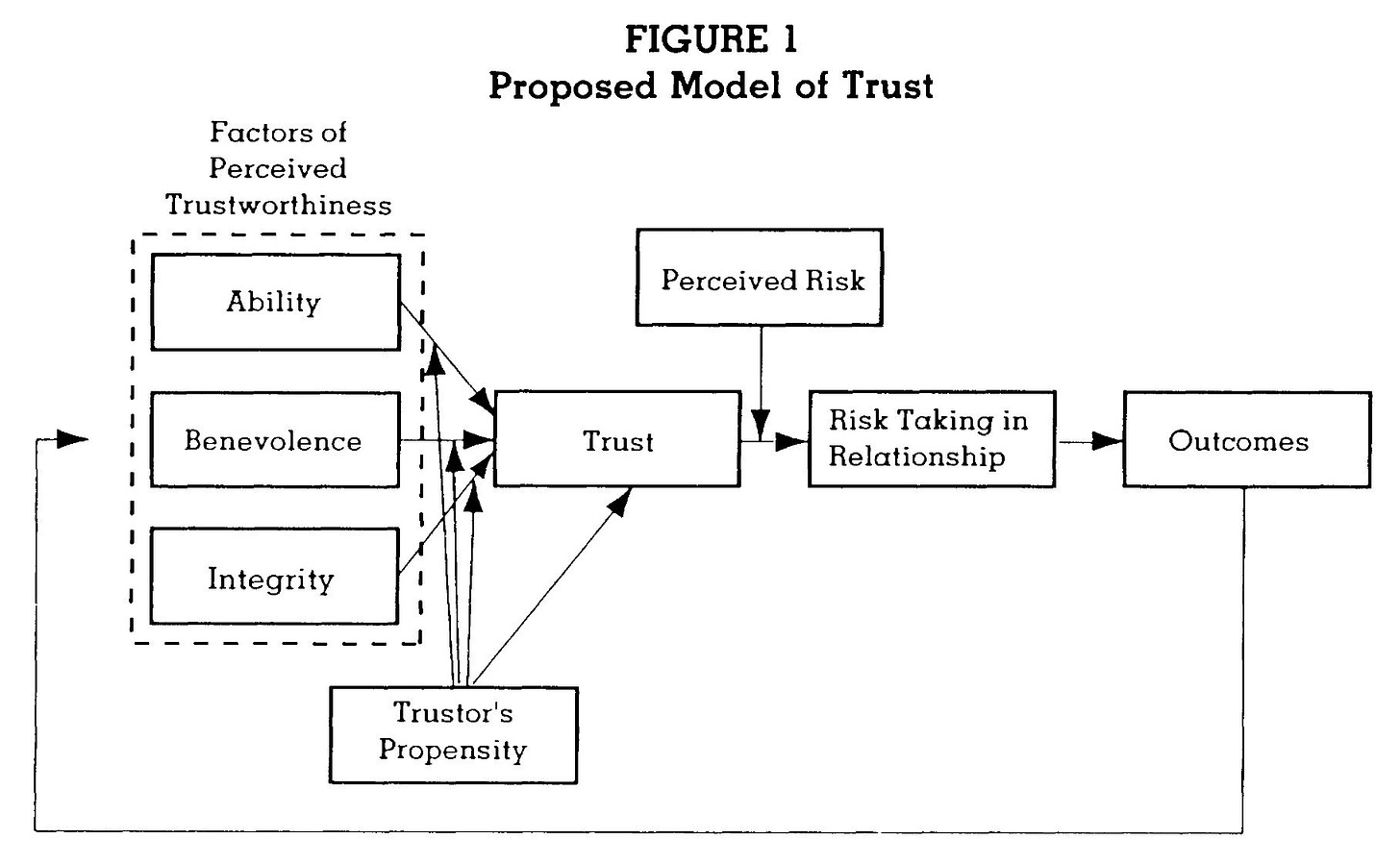Let’s delve into the concept of accountability in the workplace, examining when individuals should take responsibility, when it may be appropriate to refrain from assuming responsibility, and the steps to demonstrate accountability without facing termination. When supporters have accountability, they contribute to the culture of responsibility while safeguarding their professional standing. Accountability stands as a fundamental pillar in the workplace, demanding a nuanced understanding of when and how to take ownership of responsibilities. Our expectation from this article is to empower supporters with practical insights on navigating complex interactions and enhancing professional growth.
Sources for this article:
Gino, F., & Pisano, G. P. (2008). Toward a theory of behavioral operations. Manufacturing & Service Operations Management, 10(4), 676-691.
Mayer, R. C., Davis, J. H., & Schoorman, F. D. (1995). An integrative model of organizational trust. Academy of Management Review, 20(3), 709-734.
Lerner, J. S., & Tetlock, P. E. (1999). Accounting for the effects of accountability. Psychological Bulletin, 125(2), 255-275.
Personal stories from Mark A. Folkerts’ 26 years of military service with the U.S. Army.
Why take Responsibility?
We work in dynamic systems that are made up of people and structures. These dynamic systems operate better when “the interaction of both the physical or structural elements of the system (e.g., time lags, activity durations, the physical structure of the product development process) and the behavior of individuals operating within the system (e.g., decision rules used by participants within the development process and biases affecting those decisions)” (Gino, F., & Pisano, G. P., 2008). This dynamic can wane or even rupture when dishonesty creeps into the system. Avoiding responsibility is a lack of integrity which causes mistrust and lack of faith in your work.
Mistrust deteriorates relationships and erodes the drivers to work together. As workplaces grow in diverse cultures and thoughts, trust becomes the glue that allows us to work together. As trust is not required to cooperate with others, it is essential for confidence and predictability (Mayer, R. C., Davis, J. H., & Schoorman, F. D., 1995). When you take accountability for your actions, you will build trust, you will build confidence from others, and you will build reliability.
Accountability is a foundation block to trust in an organization. Studies have shown that lack of accountability stems from a lack of interest in the outcome, and vice versa, people have more accountability when they own or are impacted by the outcome (Lerner, J. S., & Tetlock, P. E., 1999). When you take responsibility, you psychologically portray that you take ownership of what happened and have a stake in fixing the problem for a better outcome. Accountability moves you from just being responsible to being part of the solution team.

You do take a risk when you account for failures. All trust has an inherent risk “One must take a risk in order to engage in trusting action” (Mayer, R. C., Davis, J. H., & Schoorman, F. D., 1995). I continue to find that most people understand that failures happen. Failures occur through mistakes or misunderstandings but are mostly likely not nefarious or negligent. However, it looks more negligent if you do not communicate what happened. When there is an honest mistake, leaders and supporters must recognize this as a learning opportunity. If there was negligence, and you are to blame, I have found that being truthful and honest receives much more mercy than trying to cover it up. If you are a supporter in an environment that still blames you for being honest, this would be a good time to seek new employment.
Knowing When to Take Responsibility.
While most of us play supporting roles, we also act as leaders to those who support us sometimes. You may have to take responsibility for someone supporting you. Did you do everything you could to assist your supporter with their task? Did you communicate the requirements effectively? Were you told how to execute from your leader but did not relay that effectively? All of these scenarios are mature ways to take responsibility, at least in part, on you. In many situations, taking responsibility for all of your team based on your actions, or omission of actions, can eliminate miscommunication and shift focus on solutions going forward.
I first learned this lesson as a lieutenant when I was tasked to move my Battalion’s vehicles, containers, and equipment from the United States of America through Kuwait to Baquba, Iraq. We were the first Soldiers to travel to Kuwait for our Brigade. The Brigade Commander came out to say good luck as we were loading the bus to travel to the airport. When he approached us and asked who was in charge, I immediately said, “I am.” I was the senior officer in that group.
What I didn’t realize, and I am not sure if my Brigade Commander knew as well, was that the Division Commander was arriving early in Kuwait as well. This means I was now in charge of the Brigade until my commander, or someone senior to me, arrived in Kuwait. I would have to attend meetings and take responsibility for the brigade mission, reporting directly to a Major General. When we didn’t have proper supplies, my fault! When we did a great job downloading equipment at the port, also my fault!
In this case, by taking action to lead and be responsible, I was awarded for my actions in Kuwait. My Brigade, Battalion, and Company Commanders were all highlighted across the division as examples of taking responsibility. It was my efforts to hold myself accountable for all actions that set our brigade apart from other units during this major operation.
These lessons prepared me for the responsibilities of command for a U.S. Army company. A company normally consists of 100 or more Soldiers that you are legally obligated to train and lead. When I took command, I told my Soldiers, “In most cases, if you do good, it’s on you and if you do bad, it’s on me.” As a commander, it is expected for you to take the blame and fix it versus blaming others for your mistakes.
To continue reading this article and get more information, go to:
https://thedavarkgroup.substack.com/p/week-6-accountability-as-a-supporter
















